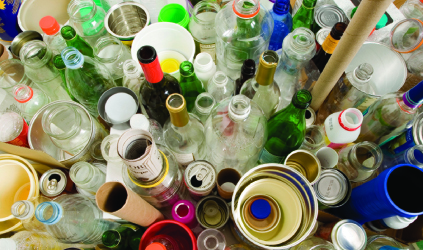It’s easy if you try, says Stephen Bates. Just think of all the trips to the dump it saves you
Councils! Can’t live with them. Can’t live without them. When it comes to recycling, the views of David Newnham (GreenerLiving, February 2007) tend to reflect the masses, who it would seem would rather do without them.
It’s time someone stood up for our beleaguered councils and applauded their efforts. After all, we in the UK are now fast approaching recycling nearly a third of all domestic waste, which is in anyone’s eyes is a terrific achievement. This success is thanks largely to the efforts of many local authorities (and, of course, the many residents, like David, who “risk life and limb” rinsing out and separating cans).
The government and certain eco-groups seem hell bent on pricing us out of our cars and off planes in a bid to cut emissions, yet recycling is one of the most simple, effective and efficient ways to reduce harmful emissions. According to the US Environmental Protection Agency, recycle half your household waste and you prevent one ton of CO2 being emitted each year (along with comparable amounts of methane which is even more harmful to the climate than CO2).
Councils have provided the means for residents to recycle. It doesn’t cost any more, it’s more convenient with less need to drive to the tip or bottle bank. All that’s required is for residents to think a bit differently about their waste and what they put in the different boxes. The message is clear: You want to drive your car or take that summer holiday in Spain? No problem, just recycle.
And here’s a simpler and easier way for you do so.
However, it’s often the message that’s the problem. Too many councils concentrate on telling people how to use a new recycling collection scheme but do not spend enough time on education about recycling. People need to know why they can’t recycle yoghurt pots and margarine tubs (the plastic type used is difficult and very expensive to reprocess), or why they mustn’t put Pyrex in with glass (it’s heat treated and can’t go through reprocessing and thus contaminates the whole load). They need to know why they can’t recycle something yet their friend a few miles away can (different districts, different processes and different processors). And then there’s the pub critic’s (and it appears, David Newnam’s) favourite: Alternate Week Collections (AWC).
Sending calendars showing people when their rubbish is being collected is handy but not what you’d call educational. People immediately think AWCs equal pongs and pests. Consequently, some advice along the lines of putting food waste in an old carrier bag, tying it and putting it in the black bin bag, keeping the wheelie bin shut and so on… would be more effective.
(As an aside, in my role at EnviroComms I’ve spent many a day out with local authorities looking at people’s bins who have complained of smells and bugs and other nastiness. I have to say that, by and large, the state of people’s bins tends to reflect the state of their home.)
There’s also a perception that councils are blessed with the power to influence producers and supermarkets to cut excess packaging and reduce waste. The simple fact is they aren’t. Unrecyclable goods may be a pain in the black wheelie bin but all a council can do is encourage residents not to buy such products in the first place, which actually is arguably more effective anyway, as big companies tend only to react to consumer demand and do so quicker and more decisively than if they are told to do something by a public body.
Recycling on the scale we now have in the UK is very new. The recycling industry, local authorities and, of course, we residents are going to stumble a few times before we learn to walk the recycling walk with confidence. In the meantime, it’s incumbent upon councils to deliver clear and comprehensive information and for residents to take note of that information and use the services provided.
So David, keep recycling, keep being green but cut your council some slack. It loves you really!
Stephen Bates is the managing director of EnviroComms, which provides marketing communications for the environmental sector
• Originally published in GreenerLiving magazine in May 2007

